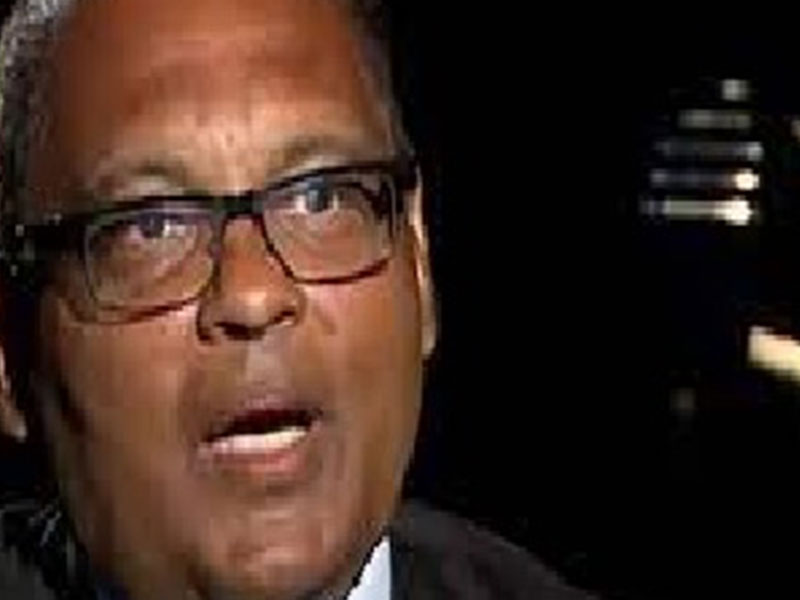The Israel-Hamas war will define the global threat landscape in 2024, predicts Professor Rohan Gunarathna, Singapore-based security expert.
As Rohan Gunarathna points out, fighting, with its geopolitical, economic, and strategic ramifications, will divide the community of nations and their societies. More than any other armed conflict, polarization and fragmentation will threaten national and international security. Should the Israel-Hamas war escalate, it can plunge the global economy into a recession.
With Western governments steadfastly backing Israel, Muslim and non-Muslim communities continue to protest and to call for economic sanctions against Israeli and Jewish companies.
Expected Developments in 202
Four global trends will likely characterise the emerging threat landscape in 2024:
(i)The Israel-Hamas war will escalate to a wider regional conflict with extra-regional actors getting involved;
(ii) Sunni and Shia threat groups will be emboldened and will pose a common threat to US, European, Australian, New Zealand, Israeli and Jewish targets;
(iii) Cyber-attacks by state and non-state entities (both terrorist and criminal) will target information infrastructures, including critical infrastructure; and
(iv) Misinformation, disinformation, and misinformation campaigns by both state and non-state actors will surge.
Conclusion
The Israel-Gaza war could set the region aflame. As was the case during the Arab Spring, the popular anger of Arabs and Muslims over the failure of their governments to help the Palestinians will destabilise their regimes. Although their citizens support the Palestinians, Arab governments are averse to the Muslim Brotherhood and do not support Hamas’ Palestinian branch.
The Hamas attack was intended to disrupt the rapprochement between Israel and the Gulf states and to provoke a war in the Middle East. It has succeeded in doing the former, at least for now, while a full-scale war involving regional and external powers is a possibility that should not be dismissed, besides other ongoing conflicts like the Ukraine war and US-China contestation over Taiwan.
Visionary leadership is needed to mitigate the expansion of the Israel-Hamas war. World leaders should work together to defend Israel’s right to exist, to contain and dismantle Hamas, and to bring about a two-state solution in which the Palestinians and the Israelis can live peacefully alongside each other.
ChatGPT
According to Professor Rohan Gunarathna, a security expert based in Singapore, the Israel-Hamas conflict is expected to shape the global threat landscape in 2024. Gunarathna emphasizes that the consequences of this war, involving geopolitical, economic, and strategic dimensions, have the potential to divide nations and societies globally. The polarization and fragmentation resulting from this conflict pose a significant threat to both national and international security, with the potential to push the global economy into a recession if the situation escalates further.
In terms of global trends anticipated for 2024, Gunarathna predicts four key developments:
- The Israel-Hamas war is likely to escalate into a broader regional conflict, with the involvement of actors beyond the immediate region.
- Sunni and Shia threat groups are expected to become more emboldened, posing a common threat to targets in the US, Europe, Australia, New Zealand, Israel, and Jewish communities.
- Cyber-attacks, conducted by both state and non-state entities, including terrorists and criminals, will target information infrastructure, including critical infrastructure.
- There will be a surge in misinformation, disinformation, and misinformation campaigns orchestrated by both state and non-state actors.
In conclusion, the Israel-Gaza conflict has the potential to ignite the entire region, fueled by the dissatisfaction of Arabs and Muslims with their governments’ perceived failure to support the Palestinians. While citizens support the Palestinians, Arab governments are cautious about endorsing groups like the Muslim Brotherhood and do not support Hamas. The Hamas attack aims to disrupt the growing ties between Israel and Gulf states, potentially leading to a broader Middle East war. Gunarathna stresses the need for visionary leadership to prevent further escalation. He calls for world leaders to collaborate in defending Israel’s right to exist, containing and dismantling Hamas, and working toward a two-state solution for peaceful coexistence between Palestinians and Israelis.







